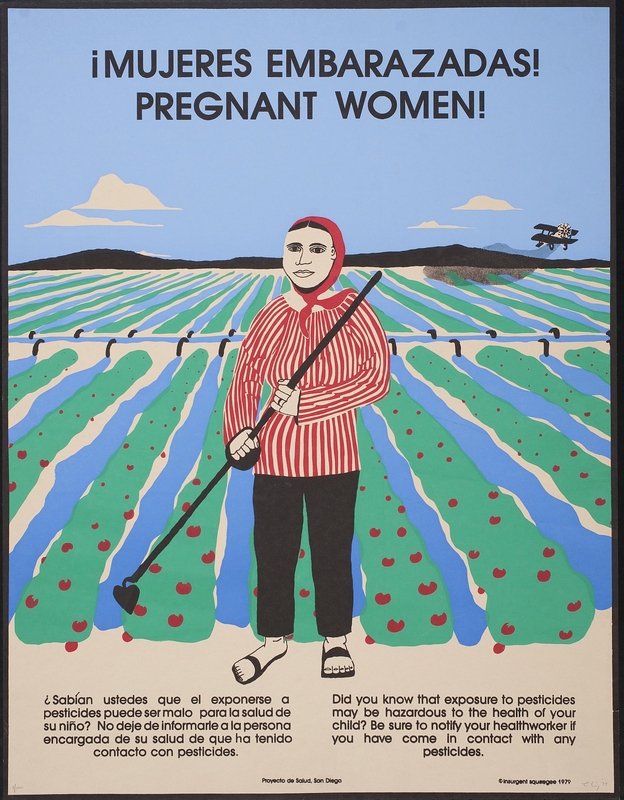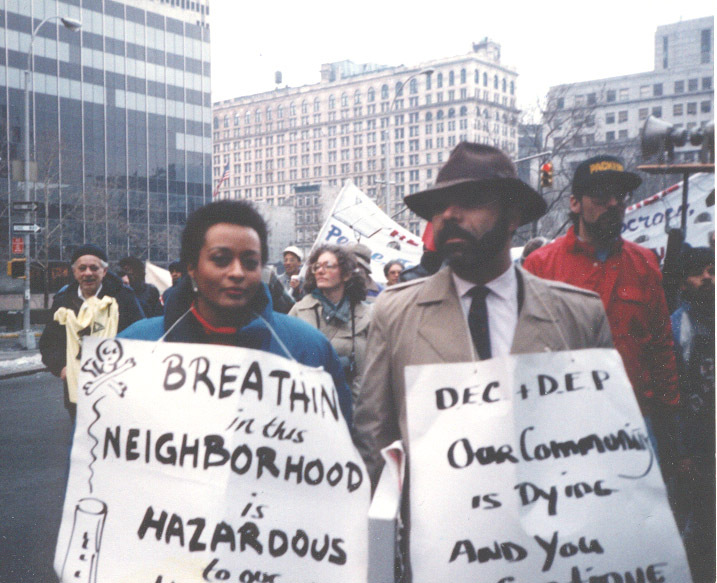Environmental Rights

Courtesy of the artist
You can’t have good health without living in a safe and healthy environment. Historically, minorities have been more likely to live in places where the air is less healthy to breathe, and housing is unhealthy and toxic. They have also worked in industries that expose them to dangerous conditions.
The environmental justice movement (EJ) was started in the 1980s by individuals–primarily minorities– who sought to address these inequalities. It built upon momentum from the 1960s civil rights movement, the work of organizers such as Cesar Chávez, and other social movements to sound the alarm about the public health dangers for families and communities.
Since its beginnings, EJ has addressed unfair environmental practices, and has advocated for government policies that ensure all communities are treated fairly. EJ has fought in partnership with communities to ensure that no group of people has an unequal share of the harmful environment. Despite much progress, environmental inequities still exist.
The first National People of Color Environmental Leadership Summit, attended by over 1,000 organizers and activists from all 50 states, as well as Mexico, Canada, Brazil, Nigeria, Chile, and Ghana, was a watershed event. The “Principles of Environmental Justice” adopted at the conference captured the spirit of this historic gathering, and helped build a strong infrastructure for the unfolding environmental justice movement. The “Principles of Environmental Justice” (PDF) were established at that meeting in 1991. The Sierra Club founded an Environmental Justice Award named for Dr. Robert J. Bullard who helped found the EJ movement. Dr. Bullard’s book Dumping in Dixie highlights African American environmental activism in the South. An influential text, it chronicles the merging of the social justice and environmental movements in what we now know as the environmental justice movement.

Courtesy of WE ACT for Environmental Justice, Inc., New York, NY
The first environmental justice organization in New York City, WE ACT was founded in 1988 to challenge the presence and further building of diesel bus depots in Harlem. It also successfully organized against the North River Sewage Treatment Plant–responsible for an increase in incidents of respiratory illnesses being experienced by local residents. Nationally recognized, WE ACT has remained true to its mission to build healthy communities by assuring that minorities and those with low-incomes participate meaningfully in the creation of sound and fair environmental health and protection policies and practices.